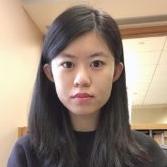Earlier today (6/28/2016), in a tersely worded statement, Xinhua reported that Lu Wei would no longer serve as the director of the Office of the Central Leading Group for Cybersecurity and Informatization. Unless something has changed in organizational terms, it also means he is no longer in charge of the Cyberspace Administration of China (CAC), the body he built almost from scratch over the last three years.
What is behind this move? It is tempting to see it as a demotion or dismissal. It is not yet made clear where Lu will go, and there is a lot of wishful thinking among observers to see the back of the man who’s been the architect of a much more assertive Internet strategy, both at home and abroad. However, while no option can ever be really dismissed in China’s opaque elite politics, I don’t think this departure is due to Lu getting in trouble. There have been few signs of this: in contrast to other cases where senior officials were dismissed or put under investigation, there have been no rumors to that effect to speak of.
If he ended up on someone’s wrong side politically, one would have expected different signals, for instance, growing policy isolation. But that has not happened. Over the past few months, Xi Jinping attended the World Internet Conference, Lu’s flagship event; Lu published a high-profile article to celebrate the second anniversary of the Central Leading Group’s founding; and the CAC published a number of draft measures for a Cybersecurity law that is moving forward as well. He also went to Moscow for a high-level Russian cybergovernance conference. It seems implausible that an official under a sword of Damocles would be allowed to leave the country.
Another report suggested that Lu Wei was removed after foreign corporations complained to Vice-Premier Wang Yang about his conduct. Yet, as far as this writer is aware, there is no precedent for a minister-level official being removed after foreign intervention, particularly at a time when putting a bit of stick about foreign companies seems to be official policy.
In comparison, another scenario is much more likely: Lu Wei is being promoted. He is clearly a man of some ambition, and the CAC has allowed him to notch up a highly impressive track record. However, there are quite strict Party norms that delineate the path to the top of Chinese politics. One essential requirement is that a candidate for Standing Committee membership needs to have either been in charge of a province or an important political body.
In Lu Wei’s case, both options are plausible. Over the past few months, rumors circulated that Lu Wei would take charge of the Zhejiang province. This would be quite symbolic, given it is also the place where Xi Jinping started his ascent, as well as practical: due to the World Internet Conference being held there, he already has strong relationships with local government departments there. Certainly, as Caijing suggests, there are ample precedents where propaganda officials took over provincial positions. Current Central Propaganda Department (CPD) director Liu Qibao, for instance, served as Party Secretary of Guangxi and Sichuan.
The other option is that, as SCMP reported initially, Lu is going to focus much more on propaganda work, and remain a vice-director of the CPD. Over the past years, even as the CAC grew from strength to strength, the CPD’s relevance to media has languished. It had proven unable to stem the tide of social media and online voices, which led to the CAC’s establishment in the first place. Nevertheless, it remains important symbolically, as a prominent Party body with a long history, as well as through its oversight of education, culture and ideology. Under this scenario, Liu Qibao would, like his two predecessors, be moved up to the Standing Committee at the 19th Party Congress. This would pave the way for Lu, who would have five years to revitalize the CPD.
Accomplishing this would be the feather in his cap that might propel him, in turn, to the Standing Committee at the 20th Party Congress. By that time, Liu Qibao would be too old to be eligible for a second term. Moreover, with his close connections at CAC, it is likely that both bodies would be able to work very closely together, better integrating the CAC’s propaganda and content management efforts with the broader ideological field managed by the CPD.
In the mean time, Lu’s successor at the CAC will be Xu Lin, who was moved in from the directorship of the Shanghai municipal propaganda department a year ago. Quiet and reserved, he seems the antithesis of Lu’s more flamboyant persona. But that may suit the changed circumstances of the CAC. In a way, Lu is leaving at the right moment: most of the big wins have been achieved. The way Lu was able to build up the CAC from scratch over a mere three years was highly impressive, even if it was helped by circumstances and Xi Jinping’s favor. In a very short time, he reversed the leadership’s perception of the Internet from something to be feared to something that could be mastered. With most of the pioneering work at the CAC done, there is little left for Lu to gain. Time for a change, perhaps?

